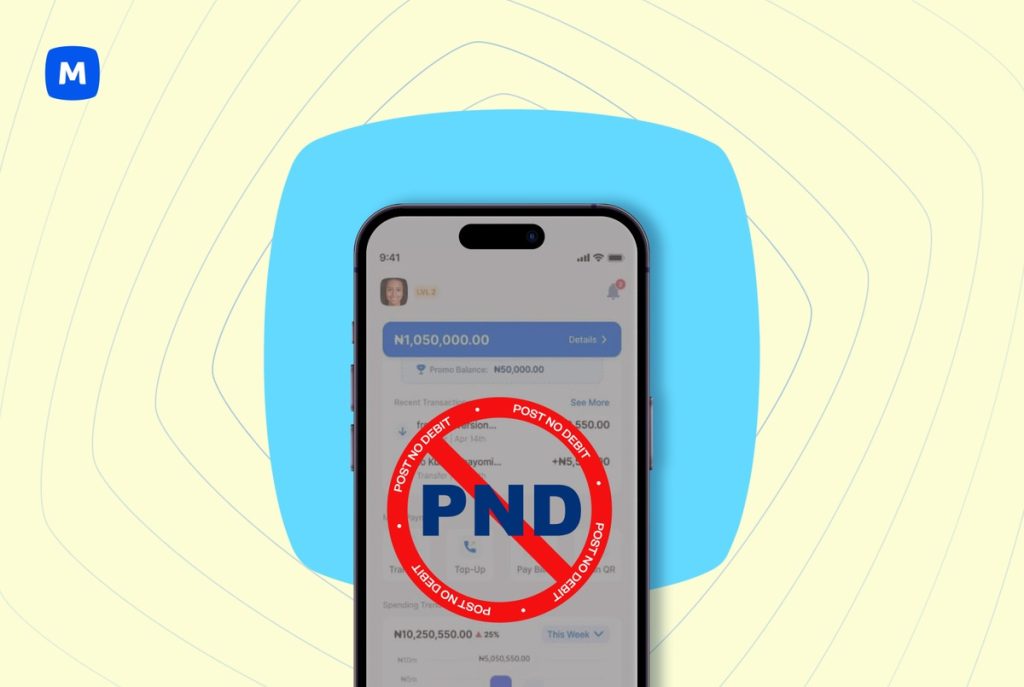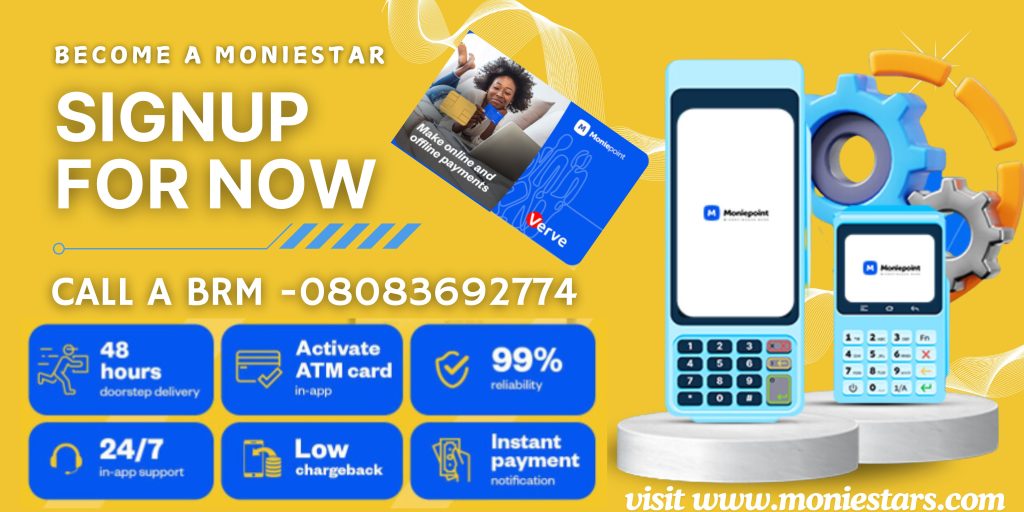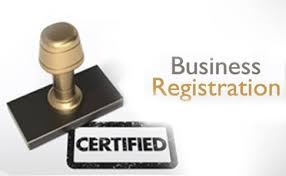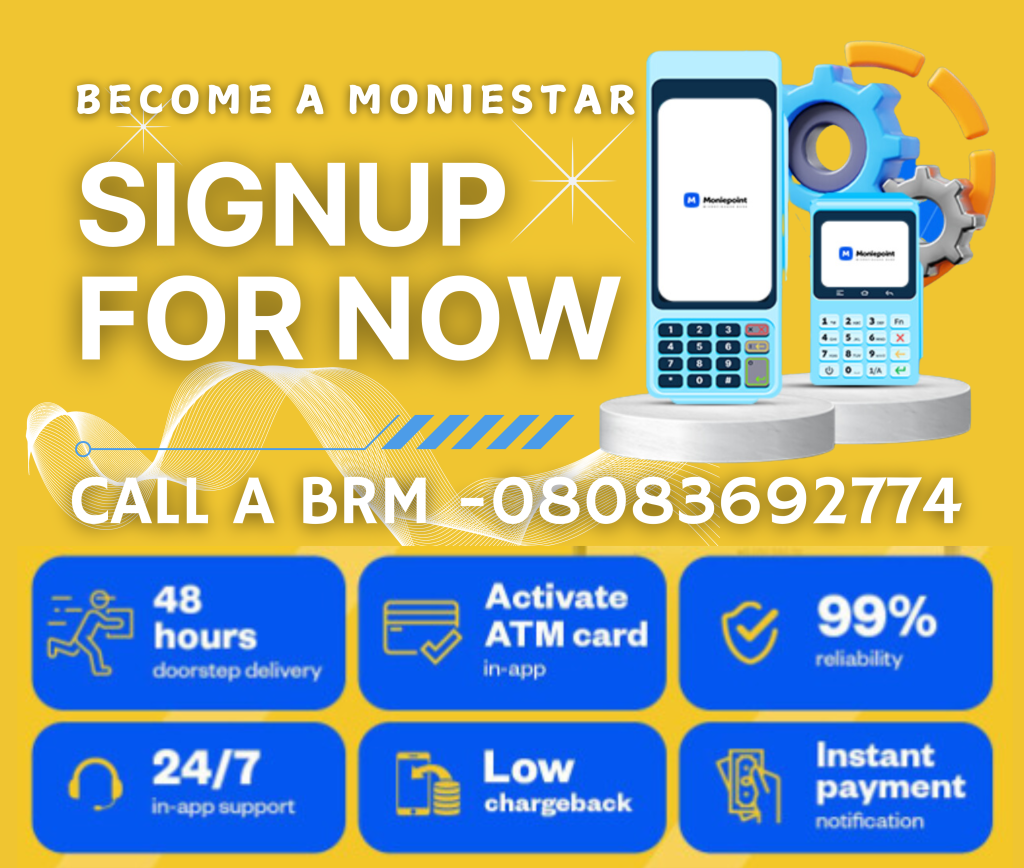Understanding PND in Moniepoint Accounts

Restricted Account: What is PND in Moniepoint?
by Moniepoint MFB
What is PND in Moniepoint.jpg
As a Moniepoint Personal and Business account holder, your account can be restricted and issued a PND. Although this can hinder your desired transfer, it’s essential to pay attention to the reason it’s issued and how to rectify it.
Let’s look at what a PND is in Moniepoint, the various reasons you might encounter one, and how to resolve them.
What is PND?
A PND or “Post No Debit” is a restriction that prevents you from withdrawing or making debits from an account. Simply put, when a PND is placed on your account, you cannot transfer money, pay bills, or make any form of payment using that account.
However, you can still receive deposits, meaning money can come in but can’t go out.
Getting a PND indicates that your account has triggered some fraudulent or compliance issues.
Here are some of the reasons you might get a PND on your Moniepoint account;
1. Scheme Rule Violation
A violation of scheme rules is one of the most common reasons your account can get a PND restriction. Scheme rules are guidelines set by Moniepoint and regulatory bodies like the Central Bank of Nigeria. These rules govern the conduct of financial transactions, ensuring security and transparency.
A breach of the scheme of rules can occur if your account is involved in any suspicious transaction that violates Moniepoint’s policies.
For instance, engaging in money laundering and not inputting your correct details in your KYC verifications, among others, can violate Moniepoint’s scheme rules. Once these occur, a PND can be placed as a preventive measure for further investigation.
If the account holder is found guilty of suspicious activity, their account gets suspended, but if proven innocent, they will need to provide adequate information to clear their names.
2. Stolen Phone or Terminal
Losing your phone or terminal could mean exposing your sensitive financial data to unauthorised individuals. In such cases, Moniepoint can issue a PND at your request to protect your funds from being tampered with by someone else.
It’s essential to take this measure, as losing your mobile device can allow an authorised person to access your bank app and financial information. You can avoid this by reporting to Moniepoint, proving your ownership, and following the required security protocols to regain access to your account.
3. Fraudulent Inflow & Outflow of Funds
Another reason you can see a PND is suspicious or fraudulent fund inflows and outflows. This can occur when significant money suddenly enters or leaves your account without a clear, legitimate source or destination.
Fraudulent transactions are red flags for financial institutions like Moniepoint, and these unusual patterns can indicate money laundering, scams, or other illegal financial activities. If you believe the inflows or outflows are legitimate, it is important to contact your support officer with evidence of the transactions, such as invoices, receipts, or communication that validates the sources.
4. Restriction Placed by BRM Due to Terminal Issue or Target Issue
Sometimes, PND restrictions are enforced by the Branch Relationship Manager (BRM) due to technical issues with the terminal or specific target problems related to the account.
This can occur when the system identifies inconsistencies or discrepancies that require immediate action. While this type of restriction is less common, it shows how even technical or system-based issues can cause a PND restriction.
Ensure that you cooperate with Moniepoint’s investigation team by submitting additional documentation to clarify and rectify the issue.
5. Erroneous Transaction
An erroneous transaction can easily trigger a PND restriction. This can happen when money is mistakenly credited or debited to/from your account due to a system malfunction or human error.
If we discover an error, our system may apply a PND until the funds are returned or verified. Rest assured that providing adequate documentation or clarification can speed up the resolution process.
6. Crypto Transactions
With the rise of cryptocurrency trading, Moniepoint has implemented stricter regulations, such as disallowing crypto transactions on user accounts. A PND may be placed if an account is linked to cryptocurrency activities.
Since cryptocurrency operates outside traditional banking frameworks, this can create legal and compliance headaches for financial institutions.
7. Regulatory Block
Regulatory authorities can sometimes restrict an account based on the account owner’s profile. This is common when someone fails to comply with anti-money laundering laws, tax evasion investigations, or other regulatory frameworks.
A PND can also be applied here to prevent further financial misdeeds until they clear their name with the concerned authorities. To resolve it, account holders are advised to adhere strictly to the law, submit necessary documentation, and cooperate fully with investigative bodies.
8. Details Used to Create an Unauthorised Account
A PND may also occur if you create an account with incorrect or fraudulent information. Identity theft and impersonation are significant concerns in our digital world, and they often result in accounts being created with stolen or false information.
You can resolve this restriction by proving your identity, verifying your information with the bank, and potentially filing a report if you were a victim of identity theft.
9. Delayed Refund Due to Business Owner’s Non-Compliance with the Refund Process
If you are due a refund but fail to comply with the refund process as an account holder, a PND may be placed until the situation is resolved.
Financial institutions like banks have specific procedures for requesting refunds. Failure to meet requirements, such as providing insufficient details or not following the proper steps, can result in a restriction. In this case, complying with Moneipoint’s process is the only way to lift the PND and receive the refund.
10. Fraud Complaint from Impersonation via Hacked Social Accounts
One of the most common forms of online fraud today is impersonation via hacked social accounts like WhatsApp.
Fraudsters may gain access to someone’s account, use it to scam others, and channel money into a bank account created under false pretences.
If your account is flagged as being involved in such fraudulent activities, even unknowingly, a PND can be placed.
This restriction ensures that the funds are frozen and cannot be moved while the situation is being investigated. If you’ve been hacked or impersonated, report the issue to the appropriate authorities and work with your financial institution to clear your name.
Conclusion
Dealing with a PND restriction can be quite frustrating. However, it is essential to understand that it is usually done to protect you as the account holder and Moniepoint from fraud or compliance issues.
Whether it’s due to a scheme rule violation, a stolen phone, erroneous transactions, or regulatory blocks, you can resolve the issue by cooperating with your support officials and financial institutions and providing the necessary documentation.

You Might also like
-
Business vs Company Name
The Big Oxmox advised her not to do so, because there were thousands of bad Commas, wild Question.
-
The Right Bank for Your Small Business
How to Choose the Right Bank for Your Small Business

As a small business owner, Ade constantly makes choices that shape the success of his venture. From picking a prime location to driving sales and attracting the right foot traffic, every decision counts.
One critical yet often overlooked choice is selecting the right bank—one that offers the services and support needed to ensure smooth cash flow and foster growth.
If you’re a business owner like Ade wondering how to select the best bank for your small business, you’re in the right place. Let’s explore some essential tips and factors to keep in mind when deciding on a business bank account.
8 Tips for Selecting the Best Bank for Your Small Business
1. Understand Your Banking Needs
Before opening a business account, take a moment to evaluate your current situation and your future goals.
Think about what’s most important to your business: Do you need a loan? A business checking account? Robust online banking features? Having a clear sense of your needs will help you choose a bank that aligns with your growth plans.
2. Assess Customer Support
As your business grows, having a bank that provides reliable support is crucial. Evaluate their customer service by asking:
- Do they offer a dedicated relationship manager?
- Is support available 24/7?
- How quickly do they respond to inquiries?
- What are their operational hours?
You’ll want a banking partner you can rely on for guidance in areas like taxation, policies, and financial planning. Checking reviews from other business owners can give you insight into their level of service.
3. Review Service Fees
Banks charge varying fees for services such as transactions, overdrafts, and account management. Comparing these fees across banks can save you money in the long run.
For instance, if your business frequently uses ATMs or debit cards, opt for a bank with low or no fees in these areas. Common charges to watch out for include:
- Account maintenance fees
- ATM charges
- Transaction fees
- Inactivity penalties
- Card processing fees
The goal is to find a cost-effective banking solution that helps you manage expenses.
4. Look for Digital Banking Features
In today’s fast-paced world, being able to manage your business finances online is a must. Many banks now offer digital tools that let you handle transactions, monitor balances, pay employees, and settle bills—all from your mobile device.
Choose a bank with a user-friendly app and online platform that makes managing your finances convenient and seamless.
5. Prioritize Security and Fraud Protection
Security is non-negotiable when it comes to business banking. Opt for a bank that prioritizes safety with features like multi-factor authentication, real-time notifications, encryption, and biometrics. This ensures you can focus on your business with peace of mind.
6. Evaluate Incentives and Perks
A good bank should provide essential services such as business accounts, debit cards, and cash management tools. But some go the extra mile by offering perks like low-interest savings accounts, free consultations, or business dashboards.
Take the time to understand these offers and any associated costs before committing.
7. Access to Credit and Loans
Expanding your business often requires capital, so it’s important to choose a bank that provides easy access to credit. Look for a bank with a fair and transparent loan process tailored to your business needs.
Banks like Moniepoint MFB, for example, analyze the financial histories of their clients to offer credit that suits their specific requirements.
8. Convenience Matters
Managing a business is demanding, so convenience is key when choosing a bank. Whether you prefer digital banking or traditional in-branch services, ensure the bank fits your lifestyle.
If you frequently travel, pick a bank with widespread branches or online options to ensure seamless access wherever you are.
Enhance Your Business Banking with Moniepoint
Choosing the right bank can significantly impact the growth and efficiency of your business. The ideal bank should offer dependable customer service, streamlined transaction options, secure accounts, and other essential tools to keep your operations running smoothly.
At Moniepoint, we’re proud to partner with over two million businesses, providing access to credit, business accounts, secure debit cards, POS terminals, and more. Join us today to experience banking tailored to your business needs, anytime, anywhere.
Post Views: 123 -
5 Black Friday Strategies
Creative Black Friday Ideas for Small Businesses in 2024

Black Friday has become a global shopping phenomenon, with consumers spending a staggering $211.7 billion during the season in 2022. For small businesses, this is more than just a sales event—it’s a chance to capture the attention of new customers and build loyalty.
But success on Black Friday isn’t automatic. It takes more than discounts and promos to make an impact. A fast, reliable payment system and thoughtful marketing strategies are key to standing out in the crowd.
Here are five innovative ways to make Black Friday 2024 a profitable event for your business. But first, let’s touch on the history behind this shopping extravaganza.
Where Did Black Friday and Cyber Monday Begin?
The origins of Black Friday are steeped in various stories. One of the most popular explanations ties the term “black” to financial ledgers: retailers would go from losses (red ink) to profits (black ink) after Thanksgiving.
Another historical perspective traces Black Friday back to the 1950s in Philadelphia, where the day after Thanksgiving caused significant traffic congestion as shoppers flooded the city for the Army-Navy football game.
In the modern retail landscape, Black Friday refers to the Friday following Thanksgiving (November 29 in 2024), kicking off a weekend of deals that culminate in Cyber Monday, a day dedicated to online shopping.
5 Black Friday Strategies to Try This Year
1. Spark Engagement with a Contest
Contests are a fantastic way to connect with your audience while promoting your brand. You could create a simple social media challenge—ask customers to share creative ways they would use a product from your store.
Encourage participants to tag friends and engage with your page. Offer a free product or service as a prize. Not only does this build excitement, but it also drives traffic and boosts your online presence.
2. Introduce Limited-Time Deals
Time-limited offers play on the natural fear of missing out (FOMO), making them highly effective. Here’s how you can use time-based promotions to your advantage:
- Exclusive early bird discounts: Reward early shoppers with special deals to create buzz.
- Hourly sales: Keep customers coming back by introducing new discounts at different hours.
- Daily countdowns: Build momentum by offering unique deals in the days leading up to Black Friday.
- Last-minute steals: Tempt late shoppers with final offers as the clock winds down.
Use social media, email, and website banners to promote these deals with a sense of urgency.
3. Maximize Impact with Email Marketing
Email marketing is a powerful tool for Black Friday promotions. Send targeted campaigns to your subscribers featuring your best deals, gift ideas, and exclusive discounts.
Keep your emails visually appealing and include clear calls-to-action, directing recipients to shop with just a click.
4. Give Shoppers a Little Extra
Adding a freebie to each purchase is a simple yet effective way to encourage buying. Options like surprise gifts, sample products, or small complimentary items can create memorable shopping experiences.
You could also let customers choose their gift from a curated selection to make the incentive feel more personal.
5. Make Checkout Hassle-Free
A surge in Black Friday transactions can put strain on payment systems, leading to delays and frustrated customers. Offering fast, secure payment options is critical to ensuring a seamless shopping experience.
Consider tools like point-of-sale (POS) systems and reliable online payment solutions. By streamlining the checkout process, you’ll stand out from competitors who might struggle with transaction bottlenecks.
Wrapping Up
For small businesses, Black Friday is a chance to get creative and connect with customers in meaningful ways. Whether it’s through interactive contests, limited-time offers, or thoughtful customer incentives, the key is to experiment and find what resonates most with your audience.
And don’t forget—having a reliable payment solution in place can make all the difference during this busy shopping season.
Start preparing now to make Black Friday 2024 a standout event for your business!
Post Views: 110


